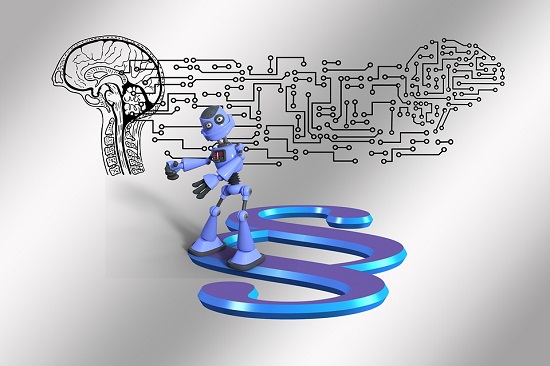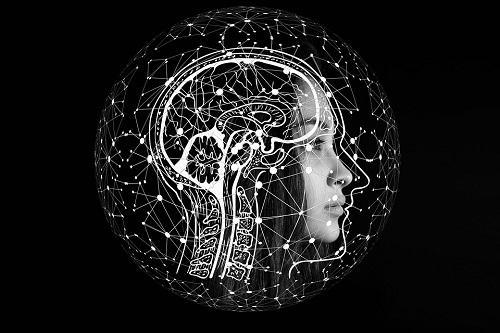创新背景
近年来,基因编辑技术、神经科学、人工智能和虚拟技术等前沿新型科技迅速发展并应用,在改变人类社会物质世界的同时也触及到人类自身。科技不能“为了科学而科学”,必须警惕科技与伦理的界限。科技伦理学正是在此基础上发展起来的交叉性学科,在科技进一步深入人类自身时,科技伦理必须被高度重视。
创新过程
2022年初,意大利理工学院联合意大利和西班牙多所高校组成研究小组,开发了一种可使光纤社内人脑深处神经元组织的新型纳米光调制器,相关研究发表在Advanced Optical Materials上。研究使用锥形光纤配备纳米结构形成光学纳米调制器,纳米结构响应光纤本身引入大脑深处区域的光刺激而产生共振,从而完成光对大脑神经元进行刺激,相当于用工具刺激监测大脑特定区域。这种工具和方法把光植入大脑深处,用外来物质在人脑深处影响大脑刺激,一定意义上帮助利用纳米结构研究人脑神经元和细胞结构,对未来脑科学和神经科学或具有深远影响。
如果从伦理学角度出发,人脑被光束刺激进行相互作用,产生的结果被特定人群在实验室进行研究,对人类发展未必是件好事。人脑使人体的中枢,外来物质介入对人体是否会造成损害尚无定论,且人脑如果因为因为光的介入和刺激产生应激、放大或减损神经反应带来的认知和情感,后果是不可想象的。

科技伦理学依托克隆技术和伦理学建立,在今天的智能时代,科技帮助人类生产和生活发展的同时也以有利的方式触及到人类物种本身,新兴技术的快速发展迫切需要人类自身划分好科技和人文的微妙界限,科技伦理必须被高度重视并拓展涉及的领域,人为地为科技发展规划好清晰、安全的界限。

在新兴技术领域和已有科技领域,科学伦理的覆盖范围应该触及到每一个学科领域。全球需要加强科技伦理的纵深合作,建立共有的科技伦理体系并完善科技伦理机制。科技伦理的发展对于科技和人文发展具有同等重要的影响和意义。加强科技伦理重视是正确使用科技助力人类社会和自然保护发展的重要基础。
创新关键点
科技伦理拓展覆盖领域范围,促进人文和科技共同发展。
After the science and technology is deeply studied by human beings themselves, the ethics of science and technology needs to be expanded
In early 2022, the Italian Institute of Technology and several universities in Italy and Spain formed a research team to develop a new type of nano-optical modulator that enables the organization of neurons deep in the human brain in the fiber optic society. The related research was published in Advanced Optical Materials. The research uses a tapered optical fiber equipped with nanostructures to form an optical nanomodulator. The nanostructures resonate in response to optical stimulation introduced into the deep brain region by the optical fiber itself, thereby completing the stimulation of brain neurons by light, which is equivalent to using a tool to stimulate and monitor a specific area of the brain. . This tool and method implants light deep in the brain, and uses foreign substances to affect brain stimulation in the depths of the human brain. To a certain extent, it helps to use nanostructures to study the structure of neurons and cells in the human brain, which may have implications for future brain science and neuroscience. deep influence.
If from an ethical point of view, the human brain is stimulated by light beams to interact, and the results produced by specific groups of people are studied in the laboratory, which may not be a good thing for human development. The human brain is the center of the human body. Whether the intervention of foreign substances will cause damage to the human body is still inconclusive, and if the human brain is stressed, amplified or impaired due to the intervention and stimulation of light, the cognition and emotion brought by the neural response will be the consequence. unimaginable.
The ethics of science and technology is established on the basis of cloning technology and ethics. In today's intelligent age, science and technology help human production and life development, but also touch the human species in a favorable way. The rapid development of emerging technologies urgently requires human beings to divide technology and technology. The delicate boundaries of the humanities and the ethics of science and technology must be highly valued and the fields involved must be expanded, artificially planning clear and safe boundaries for the development of science and technology.
In both emerging and established technologies, the coverage of scientific ethics should touch every discipline area. The world needs to strengthen in-depth cooperation in science and technology ethics, establish a common system of science and technology ethics and improve the mechanism of science and technology ethics. The development of science and technology ethics has equally important influence and significance to the development of science and technology and humanities. Strengthening the importance of science and technology ethics is an important foundation for the correct use of science and technology to help the development of human society and nature protection.
智能推荐
AI+医学 | 多器官芯片提供疾病建模新技术
2022-06-29芯片仿人体器官组织工作,深度探究人体工作原理及治疗疾病的过程和效果。
涉及学科涉及领域研究方向提取猪皮中的胶原带白开发人工角膜,帮助患者恢复视力
2022-08-15通过分析眼角膜的主要成分,从廉价易得的猪皮中提取纯化胶原蛋白,开发人类眼角膜的替代性人工角膜。
涉及学科涉及领域研究方向有氧运动增强胰腺癌抗肿瘤免疫
2022-07-02该研究发现,有氧运动可以重编程免疫系统,抑制胰腺癌肿瘤生长并增强抗肿瘤免疫力。该研究还揭示了运动产生的抗肿瘤和免疫激活作用对 IL-15 信号通路的依赖性。
涉及学科涉及领域研究方向使用诱导多能干细胞技术揭示肥厚性心肌病的疾病机制
2022-08-16耶鲁大学的研究团队使用诱导多能干细胞(iPSCs)的技术揭示了肥厚性心肌病的疾病机制,并利用基因编辑技术修改了这些基因突变,从而使疾病得到了逆转。
涉及学科涉及领域研究方向
